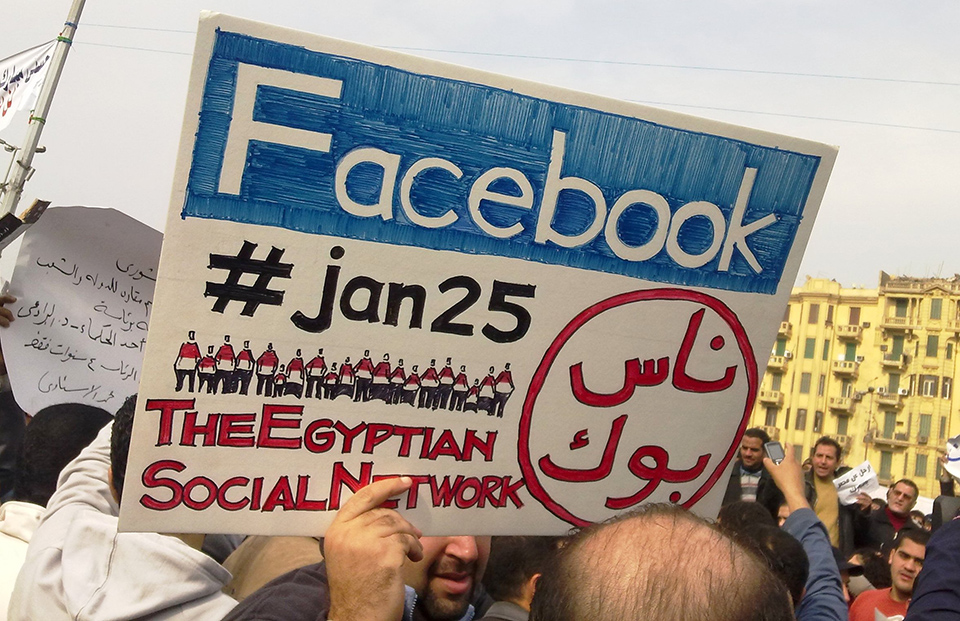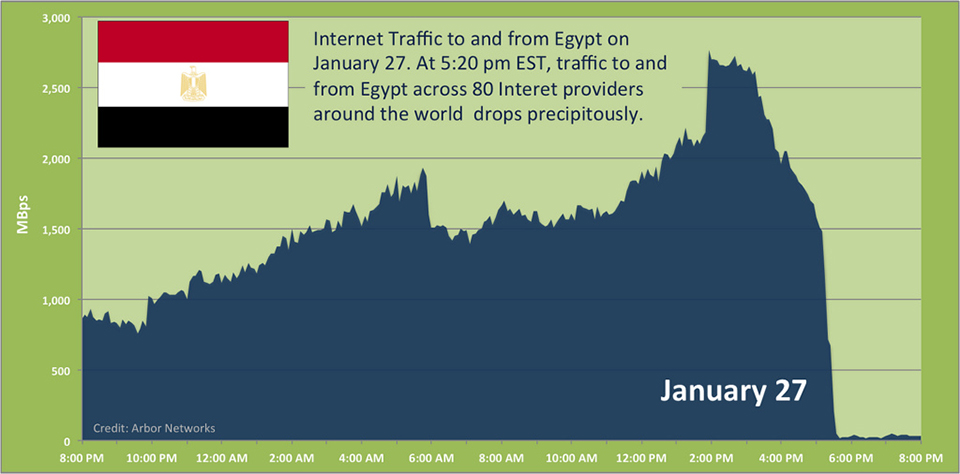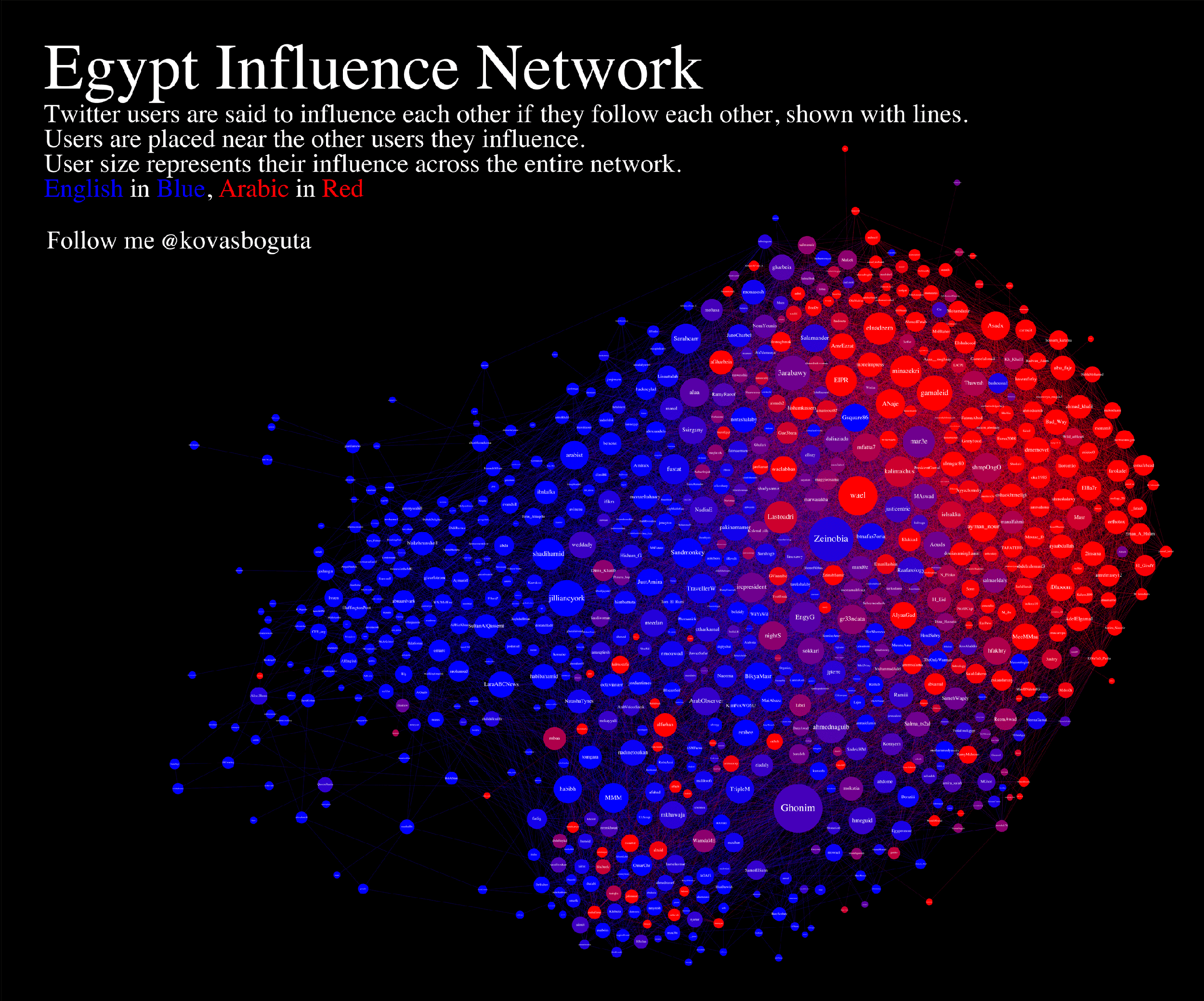
CAIRO – A few days before Egypt's ex-military chief was sworn in as president on Sunday, Internet users reacted strongly to what many here are dubbing "the return of the police state,” as the coronation of Abdel Fattah al-Sisi coincides with the arrival of a new massive surveillance apparatus.
A report published on Al Watan News last week announced the arrival of "the electronic fist" program, whereby the Ministry of Interior asked communications companies to offer bids for what it called “the monitoring of social networks' security risks and public opinion measuring systems.”
Now, many are comparing Egypt's newly revealed program to the PRISM program run by the U.S. National Security Agency, which was exposed exactly one year ago by whistleblower Edward Snowden sparking global debate about the role of government agencies and surveillance in relation to personal privacy.
The Ministry intends to monitor social networks throughout Egypt to "analyze opinions and affiliations of social network users, finding out public opinion towards certain issues, the ability to identify influential persons in different geographic regions and their relationship to each other, and identifying who is influential in certain areas." In shorthand, it's a legitimated form of online everyday spying on Egyptian citizens.
The proposed program will also target journalists, "by following certain writers and tracking their articles from the past and comparing their views in the present," the report states. "The plans will additionally include setting up fake accounts by the ministry to promote certain ideas, on different social networks at the same time."
While the government will still require permission from social networks to open personal accounts, the blatant move by government to further consolidate its surveillance powers has reminded many of the way authorities under deposed President Hosni Mubarak tried to corral online activists prior to the Egyptian revolution in February 2011.
"The matter seems horrifying," writes Egyptian commentator Tarek Amro. "Those who read George Orwell's 1984 can see the similarities of how Orwell described the police state” and what is developing in al-Sisi's Egypt today.
Mohammed Abu Zeid, head of the Internet investigative unit in the Ministry of Interior, responded to the public backlash by telling state-owned Al-Ahram newspaper that the ministry is not "using any programs to spy on citizens.” He called the reports "inaccurate," saying the ministry is working on developing programs that would merely “allow us to collect information and survey public opinion and reach instigators against the state."
Abu Zeid continued to contradict the report, saying the ministry isn't targeting personal accounts but rather “public pages and accounts.” He asserted that permission is still needed from the public prosecutor to track an account.
But in just the past week, the controversy already birthed a strong online backslash against government spying in Egypt, with a hash tag to the effect of "we are being watched" garnering thousands of entries on Twitter and Facebook, as online activists asserted the new plan is a continuation of Egypt's authoritarian intimidation of citizens. To many, it represents the new face of an old, ingrained police state that the 2011 revolution sought to overthrow.
Karim Abdel Rady, a lawyer with the Arabic Network for Human Rights Information and coordinator of the Lawyers For Democracy initiative, told Occupy.com in Cairo:
"We view these procedures that were announced in the news as a return to the old security ways – and even tougher than [earlier] state security."
"It expands the security forces' reach and role in dealing with peaceful opinions and causes," added Abdel Rady, "and it reveals a return to a police state in Egypt."
After the ousting of Mubarak in February 2011, the interim government established an Internet Crimes unit within the Ministry of Interior to combat online dissidence. Now, further changes are in store, according to experts, as the al-Sisi government moves from a “manual” system into a new program that automates the spying process through new coding and the categorization of sensitive words such as “bombs” or “terrorists.”
Abdel Rady called the program a direct affront to free speech and the right of citizens to privacy. "It constitutes an assault on personal freedoms and is unconstitutional, and goes against the personal freedoms articles in the 2014 constitution." In response, he and his organization “will be ready to move and support those who will be prosecuted and [their] rights violated once this plan is in action."
None of the country's three big telecommunications operators – Mobinil, Vodafone or Etisalat – have commented on the new policy or whether their database of personal information is open to be tapped into.
"We see the aim behind this is to silence voices. After the state was able to control traditional media, it is trying to narrow the space allowed by the Internet and social networks, but the state will not be able to control the Internet – it is too difficult," added Abdel Rady. "But the procedures in question would mean an increase in the number of individuals who would be incarnated or targeted by security forces."
3 WAYS TO SHOW YOUR SUPPORT
- Log in to post comments

















